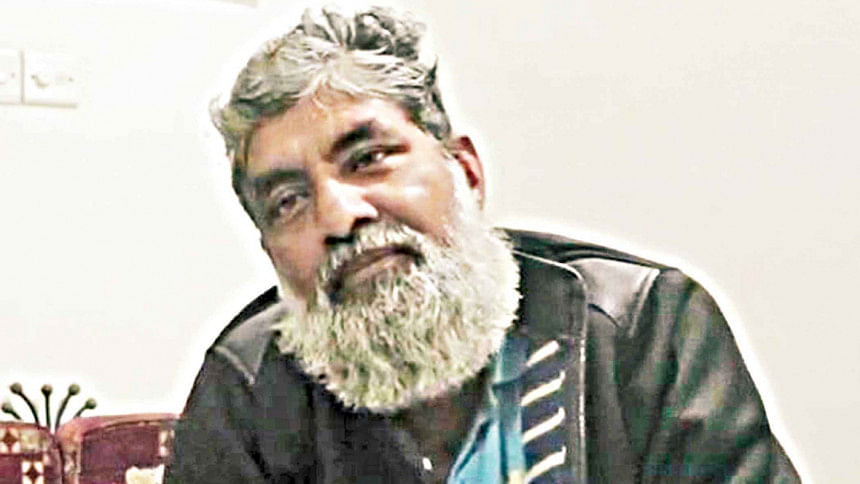Press Freedom Day: ‘Never thought I’d be forcefully disappeared’

"I still don't have the courage to say whether I was forcefully disappeared or I was lost," said photojournalist Shafiqul Islam Kajol at a webinar yesterday.
Kajol was "found" in Benapole near the India border in the middle of the night on May 3 last year, 53 days after he went missing.
"I was assaulted for doing my job. But I never thought I'd be forcefully disappeared," he said at a webinar, hosted by citizen's platform "Nagorik", marking the World Press Freedom Day yesterday.
"I cannot describe how my family and I went through the cruel times."
He said he never thought he would be able to return among his acquaintances and talk. "I did not have any power or any political backing to help me return."
Moderating the event, Supreme Court lawyer Jyotirmoy Barua said, "Kajol has told us that he already had a valid Indian visa in his passport when he was found to be entering home from India. Questions arise why he would feel the need to travel to India without a passport when he already had a visa."
Golam Sarwar, a Chattogram journalist who was forcefully disappeared last November, revealed how he was living in constant fear for his life which led him moving to his village home from his Chattogram abode.
He described how unidentified people tried to run him over with a car four times. He said he was also routinely being followed by people and continuously receiving threats.
Jyotirmoy Barua said surviving is more important for Sarwar than doing journalism at the moment.
The journalist said, "I cannot explain how I spent the last six months. I was seriously injured twice when people attempted to run me over [with a car]. During the last attempt, the nail of my big toe came off. That is when I decided to move to my village."
"I can feel Kajol's pain. I will only reveal this -- I was abducted for publishing news. When I was being tortured, my abductors received a call instructing them to ask me if I would stay journalism anymore," he said.
Sarwar said a politically influential family from Chattogram filed three cases against him and police were investigating those.
"But the case I filed following my abduction with Kotwali Police Station is hardly seeing any progress," he said.
Baul singer Rita Dewan said she was also in a similar position in which she cannot work. "People used obscenities and compared me with atheists. People also called for hanging me."
She described how the Digital Security Act cases filed against her were used for oppressing her for a song she sang last year.
"Oppression will always be there. But we have to make sure we keep on protesting," said photojournalist Shahidul Alam who was in prison in a case filed against him in 2018.
Chattogram University teacher Maidul Islam spoke about how a "disabled and silenced generation" is being created in the country.
Political analyst Firoz Ahmed said, "Democracy means freedom of the press. Suing journalists or arresting them means you do not want democracy."
CR Abrar, professor of International Relations at Dhaka University, recommended repealing the DSA immediately.
"Considering defamation as a criminal offence is a violation of the 1966 International Covenant on Civil and Political Rights," he said.
Barua said no functional and independent political system can be built without free thinking.
Meanwhile, Article 19, a Uk based rights organisation, in a press release yesterday criticised the deplorable state of press freedom in Bangladesh.
"No media is free here and people working in the mass media sector in our country still cannot express their opinion freely," the statement said citing rights activist Saleem Samad as saying.
He said journalists were not only being "barred from writing the truth externally, but also facing censorship from the owners and higher authorities of their respective media outlets".

 For all latest news, follow The Daily Star's Google News channel.
For all latest news, follow The Daily Star's Google News channel. 




Comments